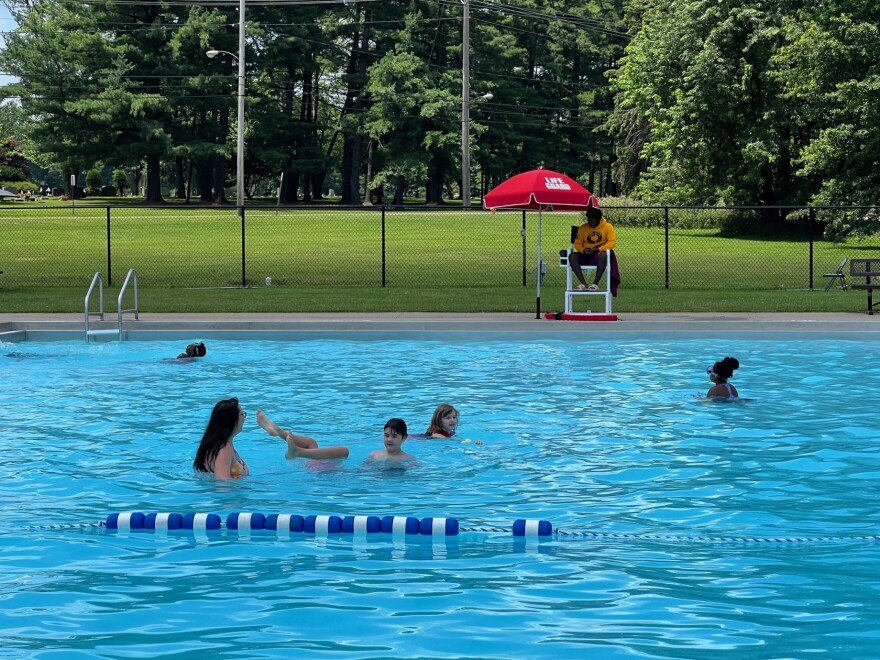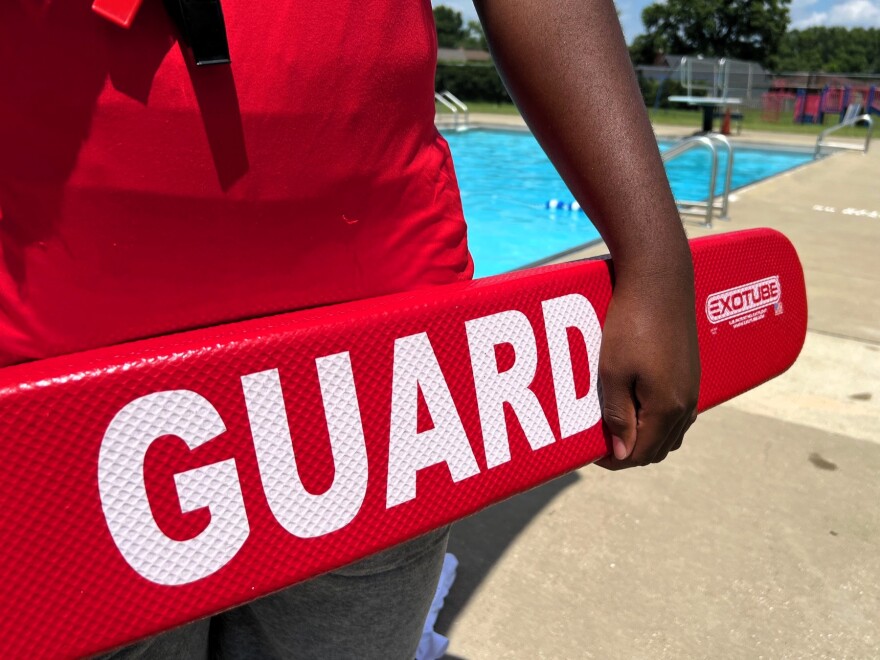When Kevin Tarpley was a young lifeguard in the ‘70s, the city of Youngstown had almost a dozen public swimming pools.
“You had a pool on every side of town — maybe one or two pools, one side had three,” he said.
Now, there’s just one left. On sticky summer days, kids crowd into the Northside Pool, leaping off a diving board, splashing in the shallow end and dashing through sprinklers and dumping buckets of water.
It’s a busy place, but until recently, the city was struggling to staff it.
“They were recruiting people from Pennsylvania to come and work here in Youngstown,” Tarpley said.
He had an idea to change that.
Teaching the next generation of lifeguards
A former Red Cross water safety instructor, Tarpley wanted to teach at-risk kids from the city to become lifeguards so they could work a summer job and stay out of trouble, and the pool could stay open.

In 2019, he started the Youngstown Lifeguard Academy and recruited local teens like Luther Bell to participate.
Bell had been a regular at the Northside Pool for years. But he was missing a skill crucial to lifeguarding: he didn’t know how to swim.
“I always say doggie paddling was my best friend,” Bell said.
According to the CDC, Black preteens in America are seven times more likely to drown in a swimming pool than their white peers.
“That's another piece of the puzzle for the academy because in the inner city, be you Black or white, you most likely don't know how to swim,” Tarpley said. “And it's all associated, believe it or not, to income because parents don't have the money to send their kids to the YMCA to learn how to swim. So I had to show them the proper front crawl, proper scissor kick, proper breast stroke, proper back stroke.”
Once kids master the basics, then the academy helps train them on CPR, first aid and how to perform a rescue — the additional skills needed to spend a summer lifeguarding.

The program requires a lot of determination, Tarpley said, and not everyone succeeds. Of the 200 people the academy has trained, 50 have become lifeguards, including Luther Bell.
Impact of the Youngstown Lifeguard Academy
Bell said the summer job changed the trajectory of his life.
“Before I met Kevin, I was about to make some worse decisions,” he said. “My mom needed some stuff in the house, you know what I'm saying? I needed some stuff they couldn't provide. So I just thought I needed to do something wrong for me to make some money, but come to figure out I didn’t have to do nothing wrong at all.”

He’s not alone. Toney Jones is using the skills he learned as a lifeguard to build a full-time career.
“I was somewhat of a first responder as a lifeguard,” he said. “So [I thought] let's try EMT, and that worked out beautifully.”
Now he’s studying to be a paramedic, helping fill another shortage in the city.
And Sierra Williams is using her income lifeguarding to help pay for college.
“She's going to be our first college graduate,” Tarpley said. “I get emotional about that.”
Williams hopes younger kids can learn from her example.
“I feel like I can do a lot of the things that other people that our community can't do, especially as a Black person in a majority Black city,” she said.
She says she feels like one part of a larger community helping younger people learn to swim and keeping them safe at the pool.
“They can see more faces like me or Luther and be like, ‘Hey, I want to be like them,’” she said.
What’s next for the academy?
The future of the Youngstown Lifeguard Academy, however, is uncertain.
Previously, it was funded by a nearly $600,000 grant from the Ohio Department of Job and Family Services.

Tarpley was hopeful the state would allocate more money for the project in the state budget, but that didn’t happen.
Now, he’s trying to crowdsource funds to keep the Youngstown Lifeguard Academy afloat.
But he doesn’t just want to sustain the program. He wants to expand it.
He envisions partnering with the local schools to offer swim lessons. And he sees it going statewide, with opportunities to work with the Ohio Department of Natural Resources to staff lakes at state parks.
It’s a worthwhile investment, he said, because this academy doesn’t just teach kids to keep their head above water. It gives them the skills to swim against the tide.



